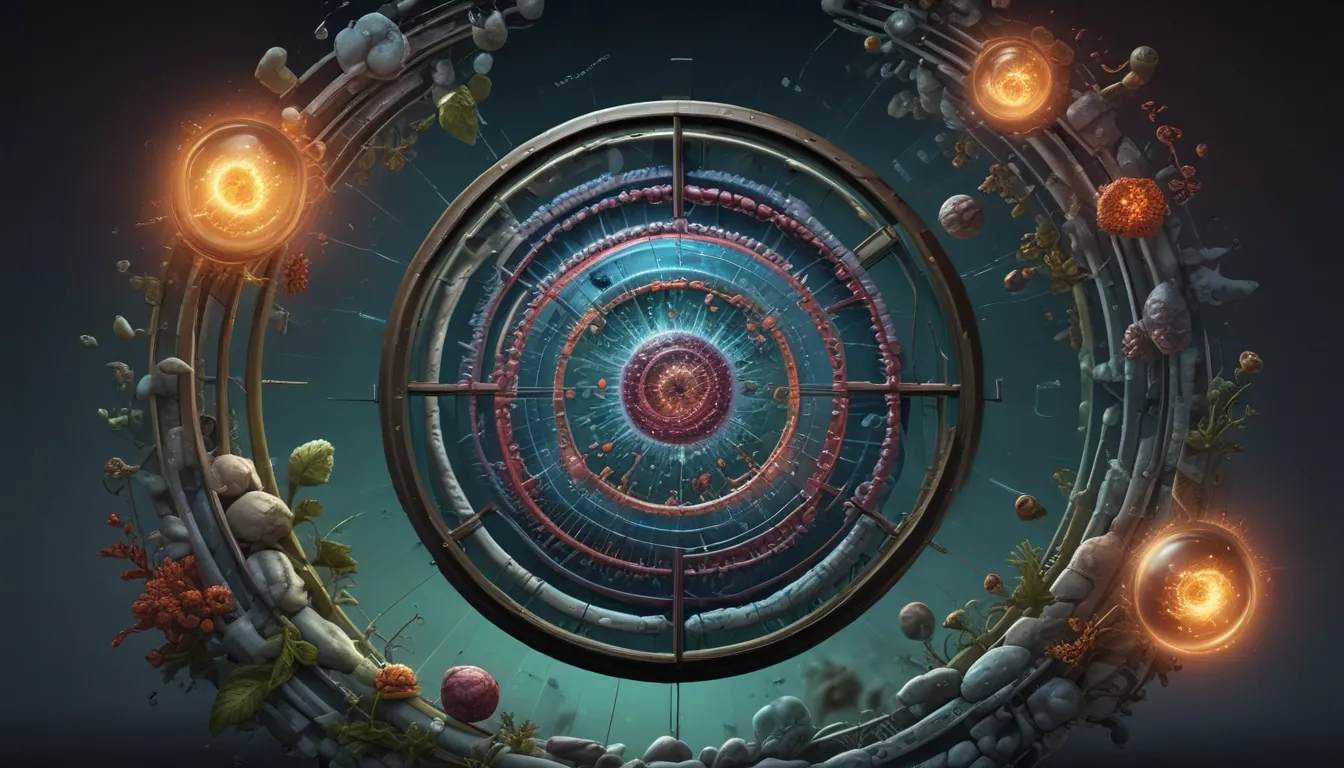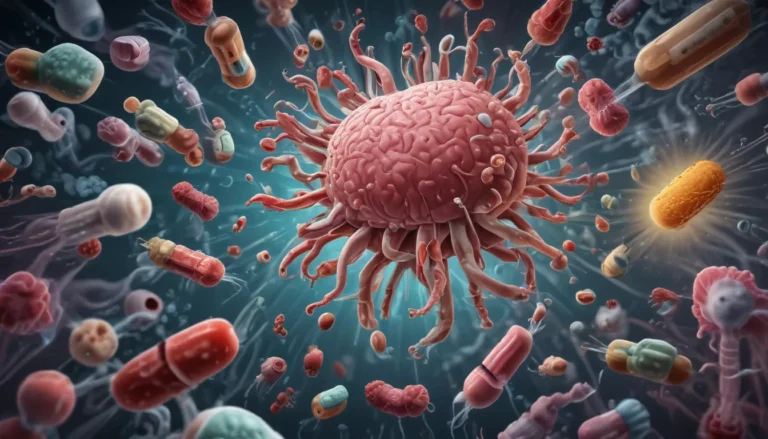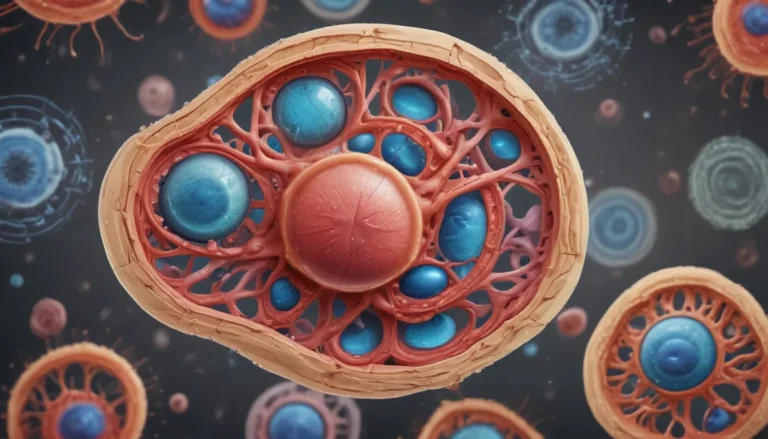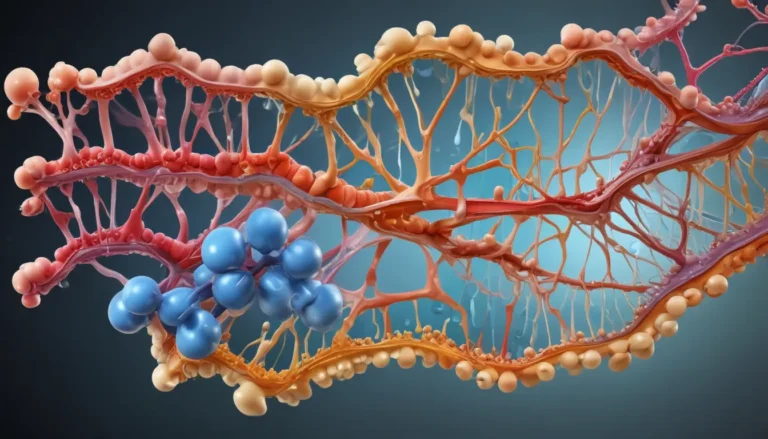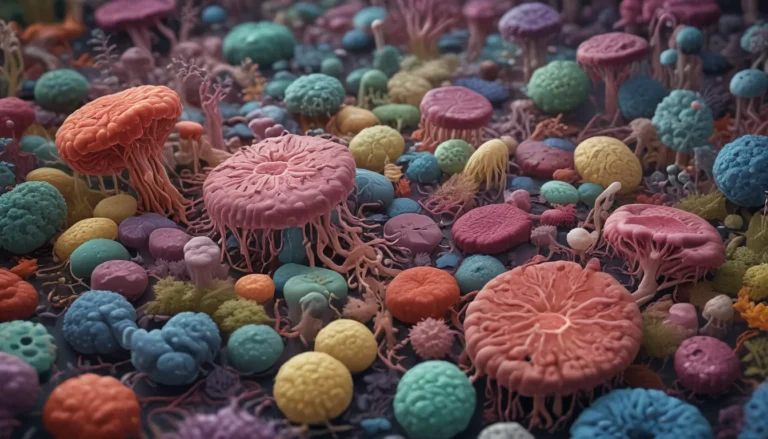A Note About Images: The images used in our articles are for illustration purposes only and may not exactly match the content. They are meant to engage readers, but the text should be relied upon for accurate information.
Welcome to the intriguing world of cell cycle checkpoints, where the intricate mechanisms of cellular regulation ensure the proper growth and division of cells. These checkpoints act as vigilant guardians, overseeing the integrity and progression of the cell cycle to maintain the stability of DNA and prevent errors that could lead to diseases like cancer. In this comprehensive guide, we will delve into 16 astounding facts about cell cycle checkpoints to deepen your understanding of cell biology and its implications in various fields, including cancer research and drug development.
Key Takeaways:
- Cell cycle checkpoints act as security guards for DNA, preventing mistakes and mutations that could jeopardize our health. They function like traffic lights in the cell’s journey, ensuring safety before moving forward and playing a vital role in cancer prevention and cell growth balance.
The Crucial Role of Cell Cycle Checkpoints in DNA Stability
Cell cycle checkpoints serve a critical function in maintaining the stability of DNA by ensuring that processes like DNA replication and cell division occur accurately, preventing the propagation of errors and mutations.
The Three Main Checkpoints in the Cell Cycle
-
The G1 Checkpoint: Also known as the restriction point, the G1 checkpoint evaluates whether the cell is ready to enter the DNA synthesis phase. If conditions are favorable and DNA remains undamaged, the cell proceeds to the S phase to initiate DNA replication.
-
The G2 Checkpoint: This checkpoint assesses the accuracy of DNA replication. If errors or damage are detected, the cell cycle is paused to allow for repair before entering the mitotic phase.
-
The M Checkpoint: At this checkpoint, the cell ensures correct chromosome attachment to spindle fibers before proceeding with cell division.
Regulation of Cell Cycle Checkpoints
Various proteins and signaling pathways regulate cell cycle checkpoints, with key players like cyclins and cyclin-dependent kinases (CDKs) orchestrating checkpoint functions.
The Implications of Checkpoint Dysfunction in Cancer Development
Mutations in checkpoint genes can lead to genomic instability, contributing to uncontrolled cell division and the accumulation of DNA damage, which heightens the risk of cancer development.
Response to DNA Damage at Checkpoints
The DNA damage response pathway is activated at checkpoints, triggering cell cycle arrest and DNA repair processes to maintain genomic integrity.
Induction of Cell Death by Checkpoints
In cases of severe and irreparable DNA damage, cell cycle checkpoints can induce cell death (apoptosis) to prevent the proliferation of harmful mutations.
External Factors Activating Cell Cycle Checkpoints
Factors such as radiation and chemical agents can activate cell cycle checkpoints, triggering responses to prevent damaged cells from proliferating.
The Role of p53 Protein in Checkpoint Activation
The p53 protein acts as a checkpoint guardian, initiating cell cycle arrest or apoptosis in response to DNA damage, ensuring cellular integrity.
Maintaining Cell Proliferation and Differentiation Balance
Cell cycle checkpoints play a crucial role in regulating cell proliferation and differentiation, ensuring appropriate division when necessary for development and repair.
Conservation of Checkpoints Across Species
The fundamental mechanisms of cell cycle checkpoints are conserved across different species, highlighting the universal nature of these regulatory processes.
Contribution of Checkpoint Disruption to Aging and Age-Related Diseases
Disruption of checkpoint control can contribute to aging and age-related diseases by increasing the risk of genomic instability and cellular dysfunction over time.
Targeting Checkpoints in Cancer Treatment
Targeting cell cycle checkpoints presents a promising approach in cancer treatment, offering potential for inhibiting uncontrolled growth and inducing cell death in cancer cells.
Fascination and Potential in Checkpoint Research
Cell cycle checkpoints represent a captivating area of research in cell biology and cancer biology, offering insights into cellular processes and therapeutic targets for diseases.
Conclusion
Cell cycle checkpoints are indispensable guardians of cellular integrity, ensuring accurate progression through the cell cycle. By monitoring DNA replication, damage, and chromosome alignment, these checkpoints prevent the proliferation of damaged cells, reducing the risk of genetic mutations and diseases like cancer. The intricate network of proteins and pathways involved in checkpoint regulation illuminates the sophistication of cellular processes.
Understanding the significance of cell cycle checkpoints in cell biology provides valuable insights into essential biological processes and potential therapeutic avenues for diverse diseases, emphasizing the critical role of these checkpoints in maintaining health and well-being.
FAQs
-
What are cell cycle checkpoints?
Cell cycle checkpoints are control mechanisms that monitor DNA integrity and critical processes to ensure proper cell cycle progression. -
How many cell cycle checkpoints are there?
There are three main checkpoints in the cell cycle: the G1 checkpoint, the G2 checkpoint, and the M checkpoint, each regulating specific processes. -
What happens if a cell fails a checkpoint?
Cells failing checkpoints may undergo repair mechanisms or activate cell death pathways like apoptosis to prevent propagation of damaged cells. -
What is the significance of cell cycle checkpoints in cancer?
Defects in checkpoints can lead to uncontrolled cell growth and tumor formation, highlighting the importance of understanding and targeting checkpoints in cancer therapy. -
Are cell cycle checkpoints present only in eukaryotic cells?
No, cell cycle checkpoints exist in both eukaryotic and prokaryotic cells, although mechanisms may differ, serving the common purpose of ensuring proper cell cycle progression.
Embarking on a journey through the realm of cell cycle checkpoints reveals the intricate design of cellular regulation, offering insights into the profound mechanisms that govern cell division and DNA integrity. By unraveling the mysteries of checkpoints, we unlock the door to innovations in cancer research, aging, and beyond, showcasing the endless possibilities for advancing human health and well-being through cellular exploration.
